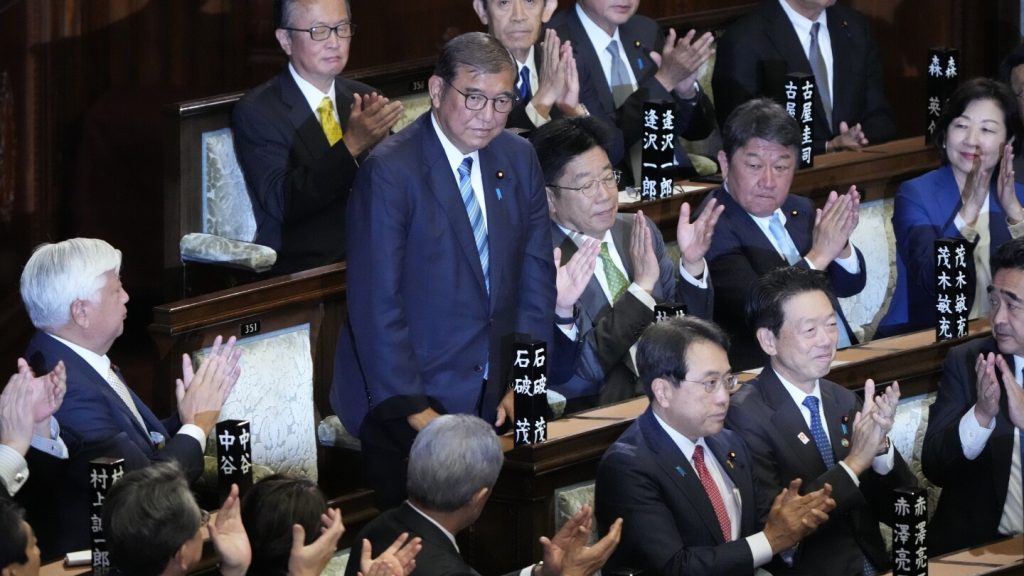Prime Minister Shigeru Ishiba of Japan was reelected by parliament following a major loss in the polls last month by his governing coalition. Ishiba pledged to take tougher measures against the misuse of political funds in response to the defeat, which was blamed on voter outrage over financial misconduct by his party. A special parliamentary session convened to pick a new leader, with Ishiba beating top opposition leader Yoshihiko Noda in the first runoff in 30 years.
In his second Cabinet in just over a month, Ishiba reappointed most of its previous members, including key ministers such as Foreign Minister Takeshi Iwaya and Defense Minister Gen Nakatani. Ishiba stressed the importance of Japan’s defense buildup to address growing threats from China, Russia, and North Korea while cooperating with the United States and other allies. He plans to attend the Asia-Pacific Economic Cooperation and Group of 20 summits to strengthen partnerships with Global South nations and the Asia-Pacific region.
Ishiba’s government is reportedly arranging a possible meeting with President-elect Donald Trump on his way home. Despite the defeat in the polls, Ishiba has refused to step down and is willing to cooperate with additional coalition partners to boost stability and pursue his party’s policies. Experts believe he will face challenges in gaining consent from the opposition on policies such as the budget and other legislation. Ishiba is focusing on listening to opposition parties more carefully and gaining their understanding.
The Prime Minister aims to cooperate more closely with the rising smaller, conservative Democratic Party for the People, led by Yuichiro Tamaki. Tamaki’s party has quadrupled its seats and gained support from low-income and younger voters for proposals to raise the basic tax-free income allowance. However, Tamaki only wishes to cooperate with Ishiba’s party on policy issues and not form a coalition, as he wants to leverage his party’s standing ahead of the next election. Despite facing personal scandals, Tamaki remains determined to work towards his party’s goals.
Overall, Shigeru Ishiba’s reappointment as Prime Minister of Japan comes at a critical time after his coalition’s defeat in the recent polls. He faces challenges in regaining the public’s trust and cooperation from opposition parties, particularly on key policy issues. Ishiba’s focus on defense buildup and strengthening partnerships with allies reflects his commitment to addressing regional threats and promoting stability in Japan’s political landscape. The coming months will test his leadership and ability to navigate complex political dynamics within the parliament.


